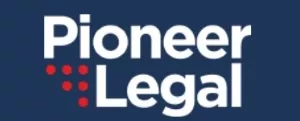Pioneer Legal are most popular:
- within Insurance, Food, Drugs, Healthcare and Life Sciences topic(s)
- with readers working within the Insurance industries
- The European Parliament had adopted the Artificial Intelligence Act (“AIAct”) in May 2024. However, the same is yet to be published in the Official Journal of the European Union. The AI Act is being widely being regardedas the world's first comprehensive horizontal legal framework for theregulation of Artificial Intelligence.
- The AI Act provides for pan-European rules in relation to data quality,transparency, human oversight and accountability. It also lays down amechanism of hefty fines, of up to 35 million Euros or 7 per cent of globalannual revenue, whichever is higher.
- The AI Act shall be applicable to (i) companies engaged in the business ofdeveloping AI systems and either placing those systems in the market oroffering the systems for use under their own trademark; (ii) importers anddistributors of AI systems operating in the European Union; and (iii)persons, including legal persons, deploying the use of AI for theirprofessional activities.
- The AI Act has extraterritorial effect as the Act shall be applicable toproviders who place AI systems on the EU market regardless of the locationthey are established in or operating out of.
- However, the AI Act will not be applicable to Artificial Intelligence speciallydeveloped for scientific and research purposes, or any other testing anddevelopment activity which may occur before the system is placed inmarket, provided the testing is not real-world testing.
- The AI Act adopts a risk-based approach, putting in place differentrequirements that are applicable to different risk levels. These levels are (i)unacceptable risk, which relate to prohibited AI practices that pose a directthreat to fundamental rights, such as, systems which can manipulate andexploit human behaviour by attacking individual vulnerability of users isforbidden; (ii) high risk, requires AI systems to comply with strict riskmitigation systems by undertaking conformity assessment and post marketmonitoring etc; (iii) transparency risk, general purpose AI systems and themodels they are based on shall meet certain transparency requirementsincluding compliance with EU copyright law; and (iv) minimal risk, whichinclude AI systems wherein no restrictions apply, such as spam-filters.
The content of this article is intended to provide a general guide to the subject matter. Specialist advice should be sought about your specific circumstances.


